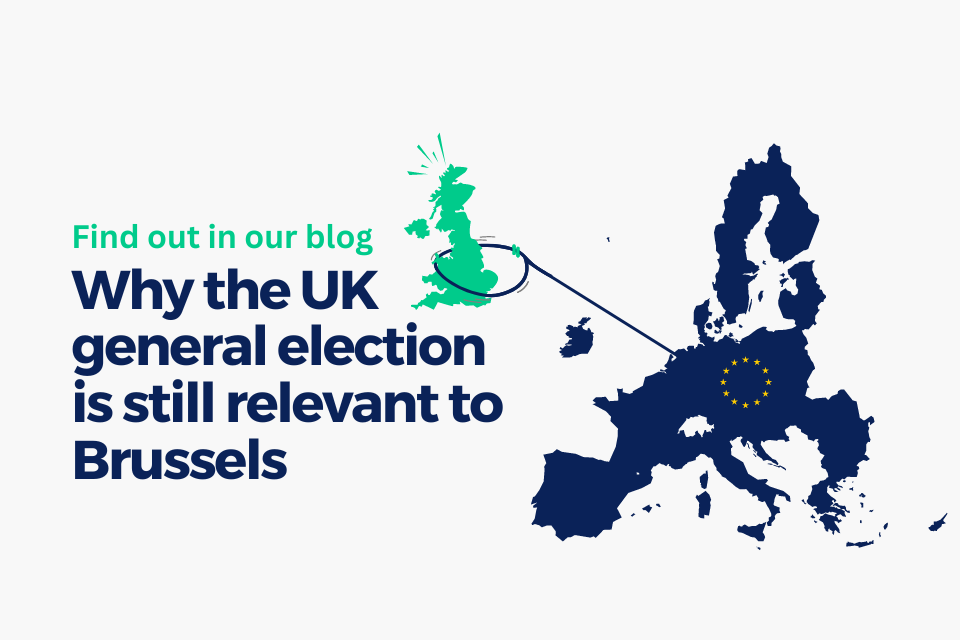#EUWHATSNEXT – Populism on the rise, but not in power. Yet.
Populism on the rise, but not in power. Yet.
#EUWhatsNext
As the first wave of Europeans chooses their representation in the next Parliament, we conclude our tour of Europe with an overview of the #EP2019 election, its possible impact on sectoral policies and future balance of power in Brussels.
Overview/main trends:
More than 400 million Europeans can vote this weekend in the European elections; however, most of them won’t. This is not news, as the trend of a diminishing turnout has long been commented upon, despite the Parliament’s ever increasing powers. As covered in our blog series, most debates in Member States remained centred on domestic politics, with Europe being an afterthought. This doesn’t help an electorate that feels disconnected from EU policy-making and its likely effects on everyday life.
As the migration crisis has largely abated, the nativist train may seem to have lost steam. Yet Eurosceptics and populists are expected to command almost ⅓ of the seats, propelled by a strong expected performance in Italy and France. It is worth noting that populism does not just exist on the fringes, as “mainstream” parties are slightly drifting away from the centre to appeal to a more polarized electorate.
Coalition building in the next Parliament is expected to become more challenging, having to bridge louder, more diverse voices. The two larger parties (EPP/S&D) will have to seek new allies, with the Liberals and Greens acting as potential kingmakers. The Liberals, who were on an on/off relationship with the grand coalition, are expected to be bolstered to 76 MEPs, thanks to the inclusion of France’s La République En Marche MEPs. The ALDE group could claim more positions of power. The Greens are expected to slightly increase their presence (from 52 to 57 MEPs) running on the fumes of the Dieselgate scandal and the impressive climate movement, personified by Swedish student Greta Thunberg. Most parties have been influenced by the protests, putting forward proposals to combat the climate emergency, yet the Greens’ deep and long-standing understanding of environment policies will make them an important voice on relevant initiatives.
A changing climate
The most obvious link to climate action is environment policy, with the next EP likely to build on the Circular Economy Package that was key during the current mandate. 25% of the EU’s budget and 35% of research funding is expected to go towards building a low-carbon economy in Europe. Co-legislators will act based on the 2050 long-term strategy. Leading voices in the ENVI committee such as Dutch MEP Bas Eickhout, who co-leads the Green’s ticket for the elections, and Italian MEP Simona Bonafè, who headed files on circular economy and water reuse, are expected to return to Brussels.

Incoming MEPs already have a full agenda on agriculture, as the current Parliament failed to adopt a position on the future Common Agricultural Policy. The current policy expires in 2020, with the proposed reform introducing major changes shifting the focus to member states, with some outsiders warning against re-nationalisation of agriculture policies. The strident voice of the populists added to the views of the Greens in a period of increased climate sensitivity and a looming deadline promise a very interesting debate this autumn.
The Commission’s urge for research-based policy-making is likely to meet the pushback of citizens’ movements and EU citizens’ initiatives that have gathered a lot of steam. Key issues related to innovation, such as New Breeding Techniques and GMOs, will be high on the agenda, after a ‘scalding’ ECJ judgement on NBTs last summer. Pesticides policy, as well as funding for new technologies such as precision farming, will also be on the radar.
French MEP Michel Dantin, who was well known for his work on CAP reform and his support for the wine sector, will be missed by the AGRI Committee, as he is running as the last candidate on the Républicains’ (EPP) list. However, his fellow MEP Paolo de Castro, from Italy, who led the file on tackling unfair trading practices in the food supply chain, is running on the Partito Democratico (S&D) list and is likely to be re-elected.
The polarization within the Parliament will also affect health policy, with members of a potential new majority having vastly different views on issues such as intellectual property (IP), further complicating negotiations between parties. Another major question is whether healthcare policy will be driven by a broad life-sciences strategy or individual initiatives.
.jpg)
Major issues for the next term are expected to be underpinned by the ongoing pricing and access debates, while at the same time EU stakeholders will keep trying to agree on how we define “value” in healthcare. We expect to see heightened discussions on incentives for R&D especially in the area of orphan drugs, as well as potentially opening the debate on new business models for antimicrobial resistance (AMR). An increased focus on vaccination is also on the cards, based on the relevant Council recommendation from late 2018. The idea of an EU Cancer Plan, launched by EPP Spitzenkandidat Manfred Weber last year, has come under fire, first for being unrealistic, and then, after being toned down, for no longer being ambitious enough. Medical devices, personalised medicine and digital health (Electronic Health Records, AI in healthcare, etc.) will also be in the agenda.
The leading voice in the EP calling for a cancer plan, Belgian MEP Lieve Wierinck, is not expected to be re-elected with Open VLD. Françoise Grossetête, a prominent voice on health issues, will end her 25-year tenure in the Parliament, as she is not running. Furthermore, Soledad Cabezón Ruiz, rapporteur of the file on HTA, is not on the list of the Spanish PSOE, and will leave her office without having the chance to negotiate with the Council, if and when the latter reaches a common approach. Their voices will be replaced by newcomers such as Dolors Montserrat, Spanish Minister for Health under the Rajoy government, and Maria da Graça Carvalho, a former Portuguese science minister, who was an advisor to President Barroso and Commissioner Moedas.
.jpg)
Turning to transport policy, as the current Commission has mostly focused its efforts on roads for cuts in CO2 emissions (cars, vans and trucks), other sectors will be expected to chip in. Those who watched the “Eurovision debate” (15 May) will know that taxing kerosene (aircraft fuel) seemed like a popular measure among candidates. The shipping industry is also under close scrutiny.
Newly elected MEPs might have to consider how to support the development of electric vehicles, but also address further automation of transport. The digitalization of transport, which has received the unwavering support of Commissioner Bulc from 2014, will continue its swift progress, from road to air. Initiatives such as Urban Air Mobility seem to bring the future closer than we could expect.
To work on these broad topics, the new Transport committee will be able to rely on returning members, such as MEP Ismail Ertug (DE, S&D) who launched an informal but very popular “Driving Future Platform,” as well as MEP Karima Delli (FR, Greens), who was the committee chair for the last 2.5 years and should be elected according to the last polls. However, fellow Green MEP, Michael Cramer (DE) is not running again, neither is MEP Matthijs van Miltenburg (NL, ALDE): these respected voices will be missed in the corridors of the Parliament..jpg)
This last term, the EU set itself up as the world’s digital regulator with the adoption of initiatives such as the General Data Protection Regulation (GDPR). Competing in the digital ‘arms race’ with the US and China, and adapting regulations to the digital economy, will drive the agenda.
The EU is set to open Pandora’s box by re-examining the delicate balances set in the e-commerce directive. Furthermore, discussions on competition and taxation in the digital economy are likely to be high on the agenda, as the EU is pushing for global solutions to be achieved at the OECD level. The EU has a fear of missing out on the digital revolution, with policymakers discussing ways to promote innovation in Europe without bending competition rules.
The Parliament’s ‘tech-gang’ is losing two very prominent members as Dutch Liberal MEP Marietje Schaake is not seeking re-election, and Greek Socialist MEP Eva Kaili may well be a victim of her party’s lacklustre domestic performance. In addition, Axel Voss (DE, EPP), rapporteur on the very controversial Copyright Directive, has also dropped the gauntlet.
As Europe leaves the economic crisis behind, the question of a Europe that protects is rising up the agenda. A more social Europe, one that creates jobs that offer better payment, working conditions and social protection, has been mentioned by candidates across the continent. In the previous mandate, the European Commission launched a few ambitious initiatives based on the European Pillar of Social Rights, in an effort to prove the Union is more than a trade bloc and a single market. These often met the resistance of Member States, with Europe’s north reluctant to see their well-established social models may be endangered or at least watered down by EU-wide rules..jpg)
Only recently, the European Commission proposed a shift from unanimity to qualified majority voting (QMV) on social issues, with an increased role for the European Parliament. DG EMPL will seek allies in Europe’s progressive camp in the next Parliament and push forward relevant initiatives.
Changeover & Power distribution
Alongside the election of a new Parliament, the EU institutions are going through an overall changeover period with the top political posts in the Commission, Council and ECB up for grabs. In 2014, we saw the first instance of the Spitzenkanditat process, aiming to democratize how the Commission’s President is chosen. The EPP will most likely command most seats in the next Parliament, and Manfred Weber, its candidate ‘will’ be the next Commission president.
Well, wait. As we discussed in our blog last November, Weber may be heading the EPP’s ticket, but there is a good chance that he won’t end up on the Berlaymont’s 13th floor. The informal nature of the Spitzenkanditat process, low visibility of the Bavarian MEP outside Brussels and usual grand bargaining between Member States may produce other results. Weber is not only challenged by the Socialist Frans Timmermans, and the Liberal Margrethe Vestager, who are better known outside Brussels, but also EPP fellows such as the World Bank’s Kristalina Georgieva (a former Budget Commissioner), or Brussels’ favourite Michel Barnier, the Frenchman who led the Brexit negotiations.
The mystery continues regarding the rest of the College of Commissioners, regarding both the composition and the allocation of portfolios. Many high profile Commissioners, such as VPs Federica Mogherini and Jyrki Katainen will be departing Brussels, while others such as Věra Jourová, and Johannes Hahn will be trying to stay, although they are not sure to obtain the green light from their government. Could we finally get a woman as Commission President? Only if EU leaders finally walk the talk… The structure of the new Commission will also depend on the next President, with calls for new portfolios such as a VP for Health, or a Commissioner for Artificial Intelligence (both Alexander Stubb, ex-Finnish premier, and Věra Jourová have indicated they would be interested in the latter). The Council’s presidency is also up for grabs, with heavyweights such as Lithuanian President Grybauskeite, Dutch PM Rutte, and even German Chancellor Merkel being rumoured to replace Donald Tusk. Finally, the Germans may be pushing Jens Weidmann, hard-line Bundesbank president, to replace Mario Draghi at the ECB but are running into a lot of flak from others… Let the horse-trading begin!


